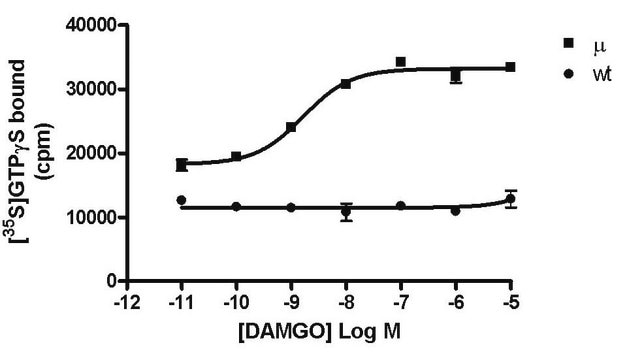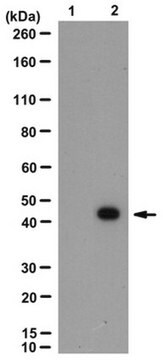MABF2091
Anti-CD6 Antibody, clone 34-3
clone 34-3, from rat
Synonim(y):
T-cell differentiation antigen CD6
About This Item
Polecane produkty
pochodzenie biologiczne
rat
Poziom jakości
forma przeciwciała
purified immunoglobulin
rodzaj przeciwciała
primary antibodies
klon
34-3, monoclonal
reaktywność gatunkowa
mouse
opakowanie
antibody small pack of 25 μg
metody
flow cytometry: suitable
izotyp
IgG2bκ
numer dostępu NCBI
numer dostępu UniProt
docelowa modyfikacja potranslacyjna
unmodified
informacje o genach
mouse ... Cd6(12511)
Powiązane kategorie
Opis ogólny
Specyficzność
Immunogen
Zastosowanie
Inflammation & Immunology
Jakość
Flow Cytometry Analysis: 1 µg of this antibody detected CD6 in one million mouse splenocytes.
Opis wartości docelowych
Postać fizyczna
Przechowywanie i stabilność
Inne uwagi
Oświadczenie o zrzeczeniu się odpowiedzialności
Not finding the right product?
Try our Narzędzie selektora produktów.
Kod klasy składowania
12 - Non Combustible Liquids
Klasa zagrożenia wodnego (WGK)
WGK 1
Temperatura zapłonu (°F)
Not applicable
Temperatura zapłonu (°C)
Not applicable
Certyfikaty analizy (CoA)
Poszukaj Certyfikaty analizy (CoA), wpisując numer partii/serii produktów. Numery serii i partii można znaleźć na etykiecie produktu po słowach „seria” lub „partia”.
Masz już ten produkt?
Dokumenty związane z niedawno zakupionymi produktami zostały zamieszczone w Bibliotece dokumentów.
Nasz zespół naukowców ma doświadczenie we wszystkich obszarach badań, w tym w naukach przyrodniczych, materiałoznawstwie, syntezie chemicznej, chromatografii, analityce i wielu innych dziedzinach.
Skontaktuj się z zespołem ds. pomocy technicznej





